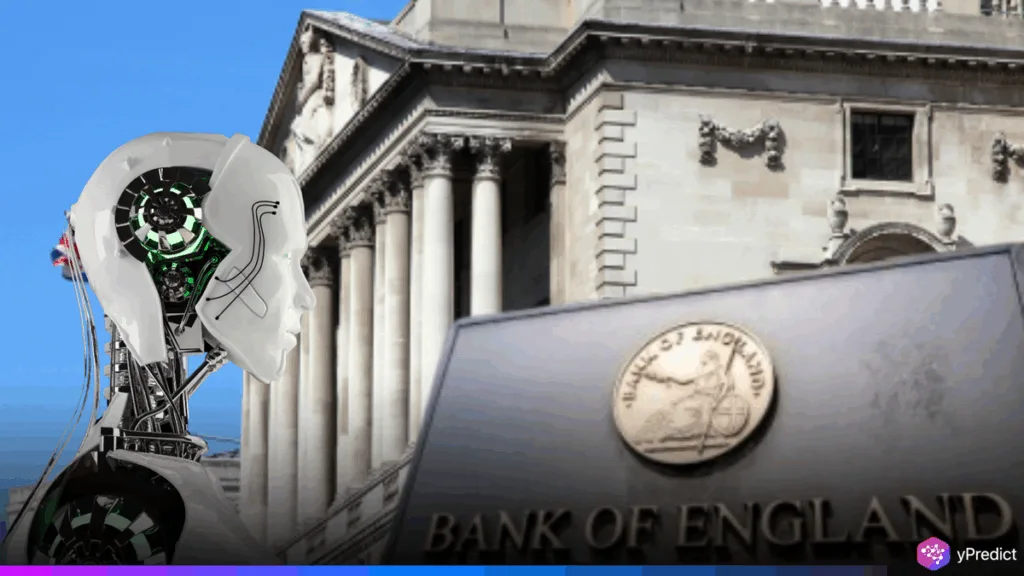
The Bank of England (BoE) is considering the ways artificial intelligence (AI) could enhance inflation forecasting to assist its policy making and communication, according to Megan Greene, a member of the central bank’s Monetary Policy Committee.
While speaking at a conference in London, Greene discussed how the BoE had begun some targeted AI experiments aimed at better short-term economic forecasts, analyzing the labor market, and developing early warnings of financial instability.
AI Brings Promise
According to Greene, machine learning techniques are showing particular promise when it comes to forecasting consumer price inflation (CPI) over short time horizons. While traditional economic models remain the foundation of the BoE’s decision-making process, she acknowledged that AI can serve as a valuable cross-check for refining projections.
“We’ve found that machine learning models can be more accurate at short-term CPI forecasting,” Greene said, emphasizing the complementary role of AI in enhancing economic foresight without fully replacing existing methodologies.
However, Greene issued a note of caution, stressing that the stakes are high when applying AI to monetary policy and financial stability. “There are massive opportunities here,” she noted, “but central banks must tread carefully.”
Real-World Applications Underway
At present, the Bank of England is exploring several AI-based applications, including early warning systems to identify potential financial crises, labor market studies to better grasp how labor markets are changing, and media sentiment analysis to enhance the effectiveness of communications.
In addition to these applications, AI is also being applied to support activities such as drafting speeches, with Governor Andrew Bailey reportedly using AI to reduce the length of his speeches. All of these applications are part of a larger endeavor to modernize the BoE’s technology infrastructure and rework its forecasting models, as called for in a recent review by former Chair of the U.S. Federal Reserve, Ben Bernanke.
Timing Amid Data Concerns
The central bank’s acceptance of artificial intelligence comes at a time that coincides with increasing scrutiny of the UK’s official economic statistics. On the same day that Greene spoke, the Office for National Statistics (ONS) stated that it had overestimated inflation data for April due to incorrect inputs from government transport statistics that had compromised market confidence.
This makes it more important for a central bank that has the responsibility to manage inflation and maintain credibility amid an uncertain market to access timely and accurate economic insight through artificial intelligence.
Productivity Gains from AI
Despite optimism around AI’s role in improving operations and communication, Greene struck a more skeptical tone regarding its impact on UK economic growth and productivity in the near term.
“There is an argument that AI could boost productivity growth quickly,” Greene said, “but I have my doubts that we’ll see real gains over my forecast horizon, which is two to three years.”
She added that while AI may generate income effects, such as higher wages or greater leisure time, these benefits are unlikely to translate into significant productivity improvements in the short run.
A Measured Approach to AI Integration
While the Bank of England’s AI strategy remains in its experimental phase, Greene’s remarks reflect a growing openness within central banks to incorporate advanced technologies for economic management. By combining human judgment with AI capabilities, the BoE aims to better anticipate inflation trends and communicate more effectively with markets and the public.
As the central bank continues testing and refining its approach, the integration of AI into monetary policy, financial stability, and communication frameworks is expected to evolve with cautious optimism and responsible innovation at its core.







